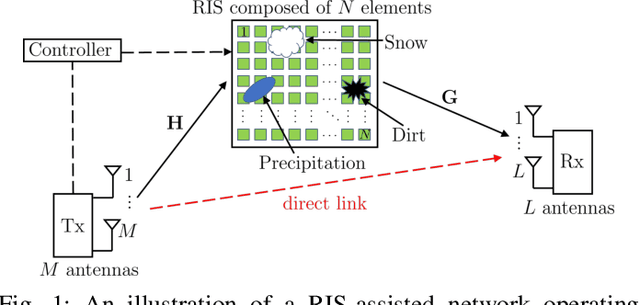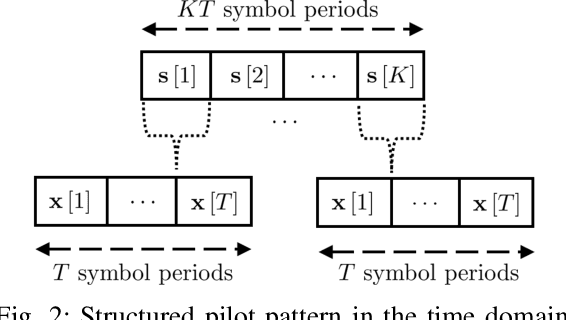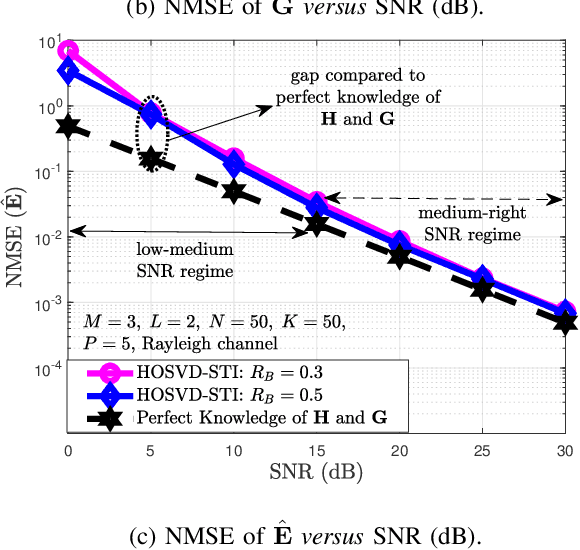Tensor-Based Channel Estimation for RIS-Assisted Networks Operating Under Imperfections
Paper and Code
Jun 07, 2022



Reconfigurable intelligent surface (RIS) is a candidate technology for future wireless networks. It enables to shape the wireless environment to reach massive connectivity and enhanced data rate. The promising gains of RIS-assisted networks are, however, strongly depends on the accuracy of the channel state information. Due to the passive nature of the RIS elements, channel estimation may become challenging. This becomes most evident when physical imperfections or electronic impairments affect the RIS due to its exposition to different environmental effects or caused by hardware limitations from the circuitry. In this paper, we propose an efficient and low-complexity tensor-based channel estimation approach in RIS-assisted networks taking different imperfections into account. By assuming a short-term model in which the RIS imperfections behavior, modeled as unknown amplitude and phase shifts deviations, is non-static with respect to the channel coherence time, we formulate a closed-form higher order singular value decomposition based algorithm for the joint estimation of the involved channels and the unknown impairments. Furthermore, the identifiability and computational complexity of the proposed algorithm are analyzed, and we study the effect of different imperfections on the channel estimation quality. Simulation results demonstrate the effectiveness of our proposed tensor-based algorithm in terms of the estimation accuracy and computational complexity compared to competing tensor-based iterative alternating solutions.
 Add to Chrome
Add to Chrome Add to Firefox
Add to Firefox Add to Edge
Add to Edge